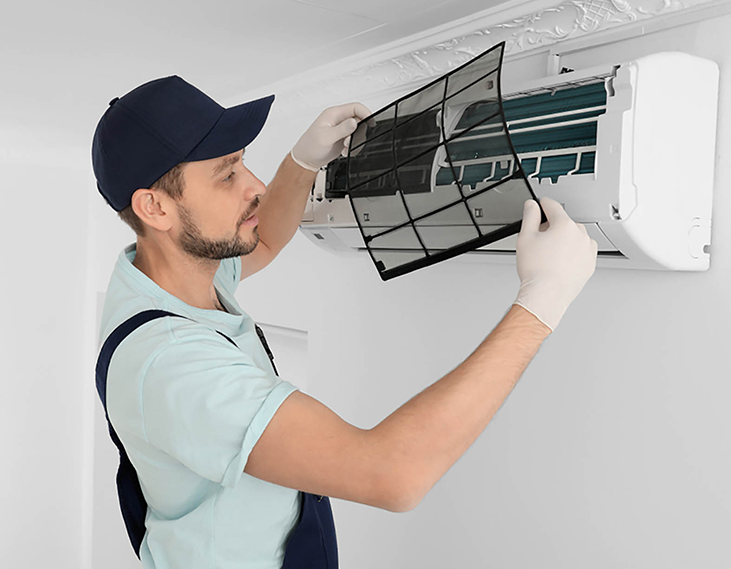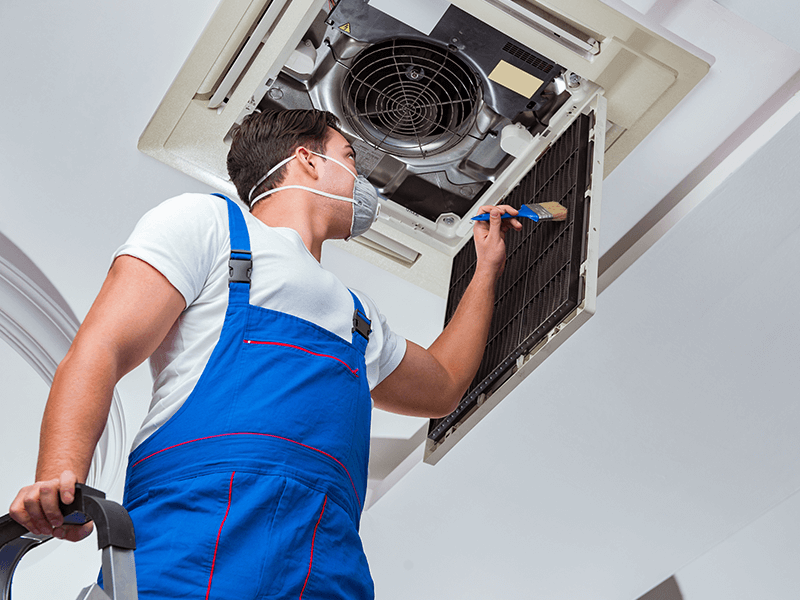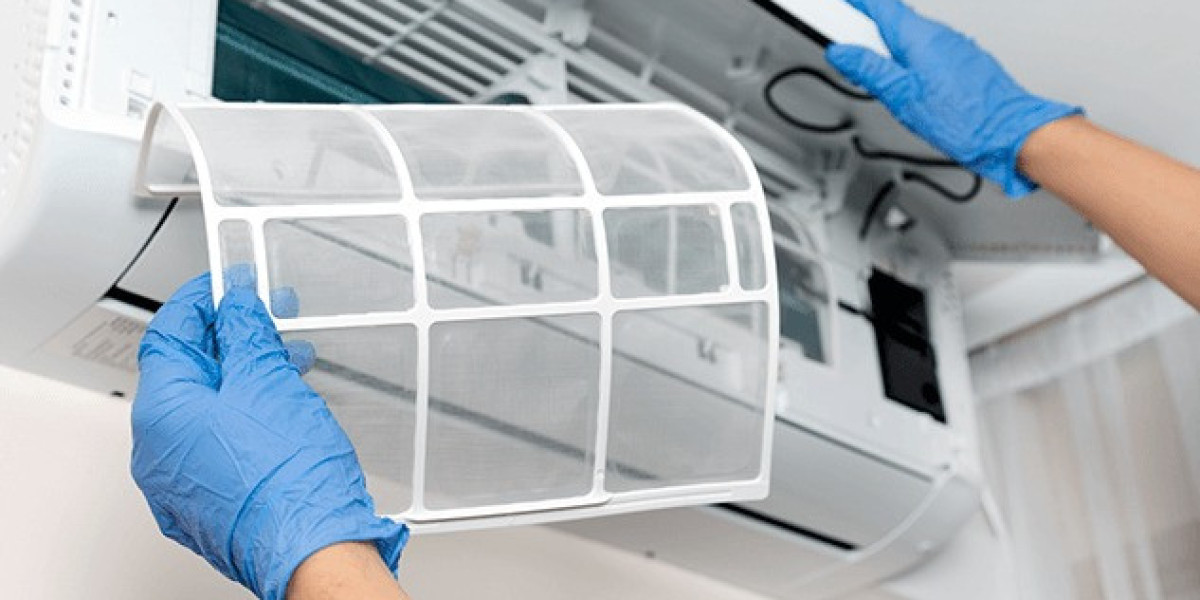Air pollution is a growing concern across cities, towns, and even smaller residential areas. While most people associate pollution with the outdoors, its effects are equally damaging indoors. Fine dust, smoke, allergens, and harmful chemicals all make their way inside, where they impact health and comfort. What many homeowners and businesses overlook is how these pollutants interfere with air conditioning systems.
An air conditioner is designed to circulate air, regulate temperatures, and maintain comfort. However, when exposed to polluted environments, the unit becomes a carrier for contaminants. The result is poor system performance, costly breakdowns, and compromised indoor air quality. This guide explains how pollution affects AC systems and the air we breathe indoors, while offering practical solutions to reduce the risks.
Understanding the Link Between Air Pollution and AC Systems
Air pollution refers to the presence of unwanted particles or gases in the environment. Outdoors, it stems from vehicle emissions, industrial activity, construction dust, or even natural sources like pollen. Unfortunately, these contaminants rarely remain outside. They easily infiltrate homes and workplaces through open windows, poorly sealed doors, or standard ventilation systems.
Once inside, the pollutants interact with the air conditioning system. Because an AC unit is responsible for drawing in air, cooling or heating it, and then circulating it, any pollutants present in the intake air are recirculated throughout the property. Instead of providing comfort, the system can end up distributing microscopic irritants. This cycle illustrates how directly air pollution and AC performance are connected.
Common Pollutants that Affect Your AC and Indoor Environment
Not all pollutants are the same. Different types cause distinct problems for both machinery and human health. Some of the most common include:
- Dust and dirt: Build up quickly in filters and coils, reducing system efficiency.
- Pollen and allergens: Trigger hay fever and respiratory issues, while sticking to internal components.
- Chemical vapours (VOCs): Emitted from cleaning products, paints, or industrial sources, leading to odours and long-term corrosion.
- Smoke and soot: Fine particles that penetrate filters, leaving deposits and affecting breathing comfort.
- Mould spores: Thrive in damp areas and worsen when humidity control fails.
Table: Pollutants, AC Effects, and Human Impact
Pollutant | Effect on AC System | Effect on Indoor Health |
Dust/Dirt | Clogs filters, reduces airflow | Irritation, sneezing, fatigue |
Pollen | Sticks to coils, hampers cooling | Allergies, asthma flare-ups |
VOCs | Corrodes parts, produces odours | Headaches, dizziness |
Smoke | Settles in ducts, lowers efficiency | Respiratory strain |
Mould | Spreads through ducts | Breathing difficulties |
How Pollution Damages Your Air Conditioner
Air conditioners are built to last, but pollution accelerates wear and tear.
- Clogged filters reduce airflow, forcing the system to work harder and consume more electricity.
- Dirty coils restrict heat transfer, lowering cooling capacity and increasing operating costs.
- Compressor strain occurs when pollutants create blockages, leading to overheating and eventual system failure.
- Corrosion from chemical pollutants or acidic particles shortens the lifespan of key parts.
The long-term impact is higher repair bills and the possibility of needing full system replacements earlier than expected. Without intervention, even a new air conditioner can show signs of inefficiency within a few years.
Impact on Indoor Air Quality
Indoor air is often assumed to be cleaner than outdoor air, yet in polluted environments, this is rarely true. A poorly maintained AC can act as a distribution system for contaminants rather than a purifier.
The most obvious consequence is increased allergens indoors, such as pollen and dust. In addition, VOCs and chemicals may be continuously recirculated, causing headaches, skin irritation, or difficulty concentrating. Poor humidity regulation inside the property further encourages mould growth, compounding the issue.
As pollutants accumulate, respiratory conditions such as asthma or bronchitis can worsen. Overall comfort declines, leaving occupants fatigued and unwell. The efficiency of the AC unit and the freshness of indoor air are therefore closely linked.
Signs Your AC is Affected by Air Pollution
Recognising early warning signs allows homeowners and businesses to act before costly problems develop. Some indicators include:
- Weak or uneven cooling despite normal settings.
- Filters becoming dirty quickly or needing frequent replacements.
- Strange odours such as musty or chemical smells coming from vents.
- Higher electricity bills, even without increased usage.
- Worsening allergy symptoms or frequent respiratory discomfort indoors.
When these symptoms appear together, it is highly likely that pollutants are interfering with the system’s operation.
Preventive Measures to Protect Your AC and Indoor Air
Preventing damage and poor air quality requires a consistent approach. Some of the most effective measures are:
- Regular servicing and cleaning: Routine inspections by professionals are essential. Scheduled air conditioning maintenance London ensures that filters, coils, and ducts are thoroughly cleaned.
- Upgraded filters: Using HEPA or activated carbon filters helps trap smaller particles such as smoke and VOCs.
- Improved ventilation: Allowing controlled fresh air circulation reduces the build-up of indoor contaminants.
- Air purifiers: Standalone units complement AC systems by targeting pollutants that bypass filters.
- Scheduled inspections: Annual or bi-annual servicing by air conditioning London professionals prolongs system efficiency and ensures clean indoor air.
Quick Homeowner Tips
- Keep windows closed during peak pollution hours.
- Avoid chemical-heavy cleaning products indoors.
- Vacuum and dust regularly to reduce airborne particles.
- Replace filters as recommended by the manufacturer.

The Role of Professional Maintenance
While regular DIY cleaning helps, professional servicing is indispensable. Skilled technicians carry out tasks that cannot be managed without specialist tools and knowledge. This includes coil cleaning, duct inspections, refrigerant checks, and identification of leaks or corrosion.
Professional air conditioning maintenance London services extend system lifespan and reduce the risk of sudden breakdowns. For businesses, this also ensures uninterrupted operations and healthier workplaces. Long-term, the cost of scheduled servicing is significantly lower than repeated emergency repairs or complete replacements.
Future Outlook – Cleaner Indoor Air Through Smarter AC Systems
The future of air conditioning lies in intelligent systems capable of monitoring and improving air quality automatically. Smart AC units already feature sensors that track humidity, pollutants, and temperature. Enhanced filtration technology is being developed to capture even finer particles, providing cleaner air for occupants.
Energy efficiency is also a major focus. By reducing both pollution impact and energy consumption, these systems promise a healthier and more sustainable indoor environment.
Conclusion
Air pollution has a direct and damaging effect on air conditioners and indoor air quality. Left unchecked, pollutants reduce efficiency, cause expensive breakdowns, and compromise health. Fortunately, with proactive maintenance, upgraded filters, and professional servicing, these risks can be effectively managed.
To protect your AC system and ensure clean indoor air, regular upkeep is essential. Professional services provide peace of mind that your system is operating at peak performance. Hamilton Air Conditioning Ltd delivers expert support, ensuring your home or business enjoys reliable comfort and healthier indoor air.







